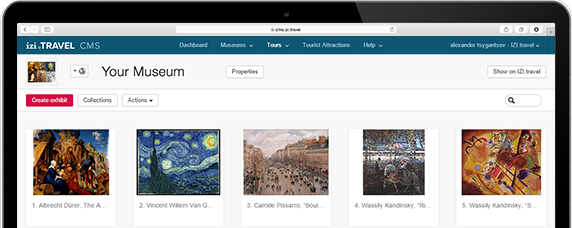Audio tour World War II
- Download the app
- iOS
- Android
- Windows Phone
World War II is considered to have begun on 1 September 1939, when Nazi Germany, under Adolf Hitler, invaded Poland. The United Kingdom and France subsequently declared war on Germany. Under the Molotov–Ribbentrop Pact of August 1939, Germany and the Soviet Union had partitioned Poland and marked out their "spheres of influence" across Finland, Romania, and the Baltic states. From late 1939 to early 1941 in a series of campaigns and treaties, Germany conquered or controlled much of continental Europe, and formed the Axis alliance with Italy and Japan. Following the onset of campaigns in North Africa and East Africa, and the fall of France in mid-1940, the war continued between the European Axis powers and the British Empire, with war in the Balkans, the aerial Battle of Britain, the Blitz of the UK, and the Battle of the Atlantic. On 22 June 1941, Germany led the European Axis powers in an invasion of the Soviet Union, opening the Eastern Front, the largest land theatre of war in history and trapping the Axis powers.
Japan, which aimed to dominate Asia and the Pacific, was at war with the Republic of China by 1937. In December 1941, Japan attacked American and British territories with near-simultaneous offensives against Southeast Asia and the Central Pacific, including an attack on the US fleet at Pearl Harbor which forced the US to declare war against Japan. The European Axis powers declared war on the US in solidarity. Japan soon captured much of the western Pacific, but its advances were halted in 1942 after losing the critical Battle of Midway.
Germany and Italy were defeated in North Africa and at Stalingrad in the Soviet Union. In 1943, a series of German defeats on the Eastern Front, the Allied invasions of Sicily and the Italian mainland, and the Allied offensives in the Pacific, forced The Axis countries into strategic retreat on all fronts. In 1944, the Western Allies invaded German-occupied France, while the Soviet Union regained its territorial losses and turned towards Germany and its allies. During 1944 and 1945, Japan suffered reversals in mainland Asia, while the Allies crippled the Japanese Navy and captured key western Pacific islands.
Following Hitler's suicide on May 8, 1945, Germany surrendered. Following the Potsdam Declaration by the Allies on 26 July 1945 and the refusal of Japan to surrender on its terms, the United States dropped the first atomic bombs on the Japanese cities of Hiroshima, on 6 August, and Nagasaki, on 9 August. Faced with an imminent invasion of the Japanese archipelago, the possibility of additional atomic bombings, and the Soviet entry into the war against Japan and its invasion of Manchuria, Japan announced its intention to surrender on 15 August, then signed the surrender document on 2 September 1945, cementing total victory in Asia for the Allies.
World War II was by far the deadliest conflict in human history, and resulted in 70 to 85 million fatalities, a majority being civilians. Tens of millions of people died due to genocides (including the Holocaust), starvation, massacres, and disease. In the wake of the Axis defeat, Germany and Japan were occupied, and war crimes tribunals were conducted against German and Japanese leaders.
World War II changed the political alignment and social structure of the globe. The United Nations was established to foster international co-operation and prevent future conflicts. The victorious powers of China, France, Soviet Union, United Kingdom, and the United States, became the permanent members of its Security Council. The Soviet Union and the United States emerged as rival superpowers, setting the stage for the half-century-long Cold War, and future conflicts by the United States in Vietnam, Korea, and the Middle East.
To learn about Delaware's role in World War II, go to the "Delaware In World War II" exhibit, below.
Source: Wikipedia
Tour stops
Reviews
Download the free izi.TRAVEL app
Create your own audio tours!
Use of the system and the mobile guide app is free


